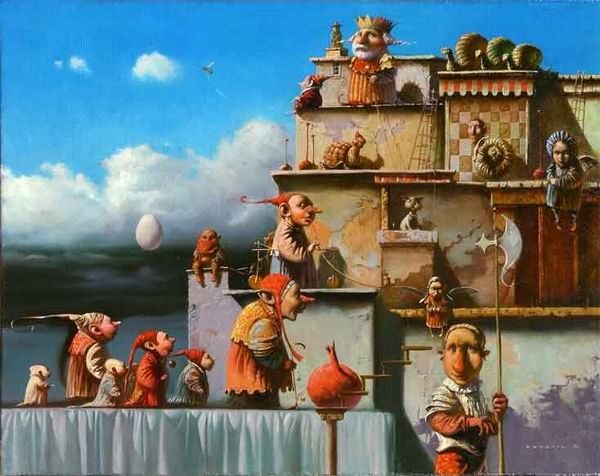
PRINCIPIA SCACCHORUM: How Come There Are 99.5% Patzers in Chess?
Standing on the borderline between game, art, science and sport, chess is not only one of the greatest intellectual delights, but also a perfect paradigm for teaching and learning certain mental skills citizens of the 21-st century need to become successful, independent and productive in an increasingly complex and fast changing world. Unfortunately, the traditional teaching method has been keeping millions out of the game to reap these benefits. To replace an outdated and ineffective early education in chess we need a modern revolutionary breakthrough. For this to happen it is therefore absolutely necessary to revisit the true chess basics, Principia Scacchorum, in order to be able to design a strong and effective early chess learning system for effective participation in the best game ever invented by humans so far...
Why is chess, the "only game worth playing" (the British novelist R.D.Blackmore) so difficult to learn?
Assuming you don't need to have a high IQ or be a genius to learn and play chess, the culprit quite naturally comes down to inadequate early teaching. Early education is the key to future success in any domain. In chess, developing initial visual capacities (also known as chess board vision) is central to all chess experience. Without mastering these chess fundamentals it is much harder or even impossible to grasp more advanced concepts in the future. Obviously, one cannot build up a skill or knowledge on shaky foundations.
The chess educators know very well that poor board vision is a widespread phenomenon. What they seem not to understand is how poor chess vision sets in early in the learning process with its devastating impact on the beginning player's mind set.
So where does the poor chess vision come from? This near-blindness appears to be a direct result of what and how we teach in the very first few days and weeks when the chess basics should hopefully all be in place.
If the above astatement is true, then it makes sense to ask whether this is either because we are unsure how to go about the fundamentals, or, which is almost impossible to believe, we only dimly perceive what really comprises true chess basics.
Could it really be that the basic chess principles, Principia Scacchorum, have still been escaping our due attention and clear and precise understanding for fifteen plus centuries of the game?
"What is the chess basics?" may sound like a silly question, but the mere fact that 99.5% of those who take up chess once in lifetime never get, with only "the moves" learnt, out of the first level, is raising alarming red flags.
"If we do not know enough about the relationship between early experience and the ultimate competencies necessary for effective participation [in chess], how can we design effective educational practice?" (Katz, 1996)
As a matter of fact, the question what makes up the chess foundations is an ultimate inquiry into the nature of chess.
It is our aim here to present, in a series of ensuing posts, for the case of what the chess basics really are and how their better understanding may help improve learning in the very early critical period. The ultimate goal is to make chess accessible to many more millions and millions of people currently kept out due to ineffective early teaching.
Albert Einstein once said that the supreme goal of all theory was to make the irreducible basic elements as simple and as few as possible without having to surrender the adequate representation of a single piece of experience.
So again, what are the true chess basics?
- What are the basic building blocks that shape all our experience in chess?
- What is it that never changes, the foundation for everything we learn and do in chess from the moment one?
- What kind of mind set is it that we have to acquire first in the very beginning? which is actually the fastest way to learn in the long run.
- What is it that once mastered, everything else becomes a lot easier and the learning process accelerates?
- What is it that without it "education in chess is frightful waste of time and values?" (Dr. Lasker)
- Why is that we too often are looking for "clever exciting paths" to excellence and ultimately fail, while the most direct route to success is right under the nose?
- What is it that without it any high-theory details and "fancy techniques" seem useless?
- What is it that once you have learned becomes hardwired into your brain and you don't really need to think about it again?
- What are these fundamentals that some people have mastered what has become their second nature? which is the main distinction between chess Masters and the rest of us.
Think about it for some time.
But I warn you upfront, it may not necessarily be the moves first, which appears to be "fundamentally false." (Nimtzowitsch, 1929)
If we find the correct answer to this ultimate question of chess we will understand why those 99.5% of people never advance to the next level.
By laying down Principia Scacchorum first, let us then find better ways of how to get initiated in chess, to help many more folks get in and stay in the game for a lifetime pleasure!
Next time, Chess Basics You Never Thought of
art Milorad Dobric, from a chess primer in Serbo-Croatian "Chess - The Game of Millions" by Dragoslav Andric
